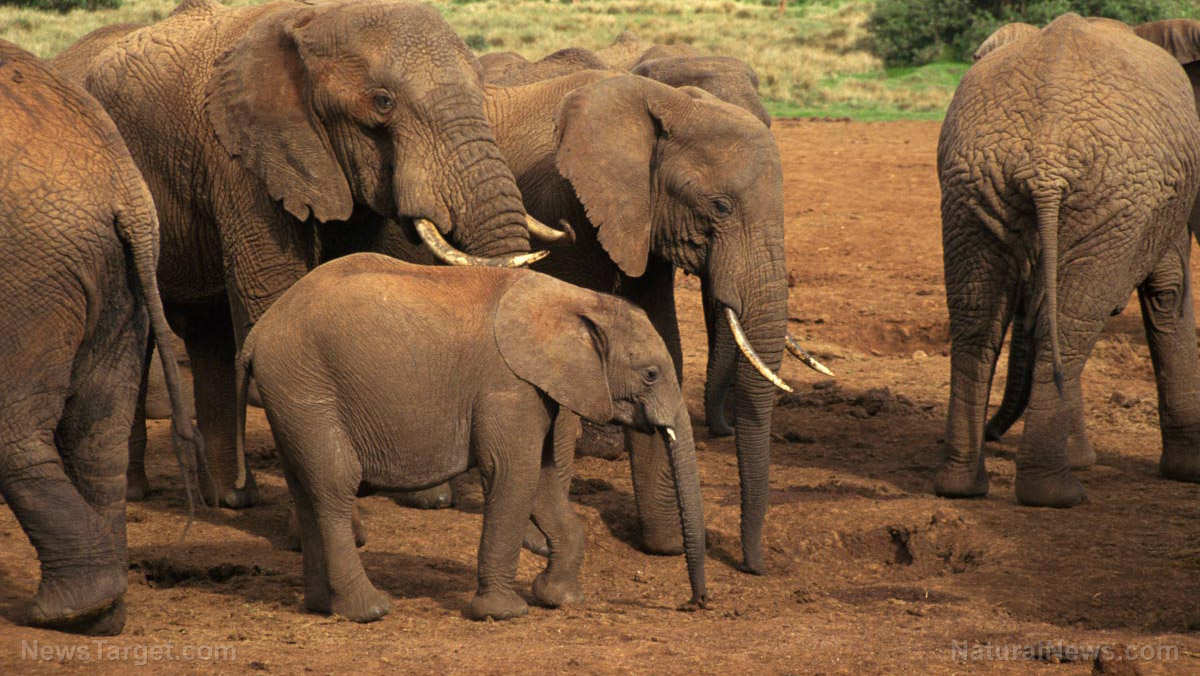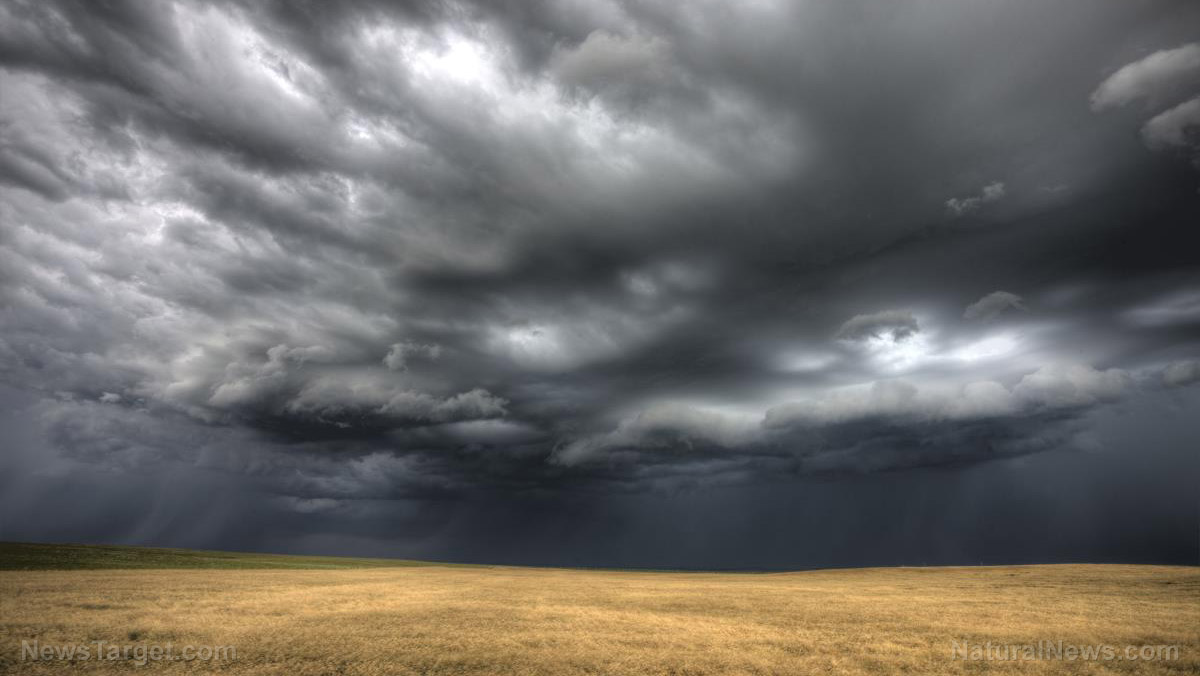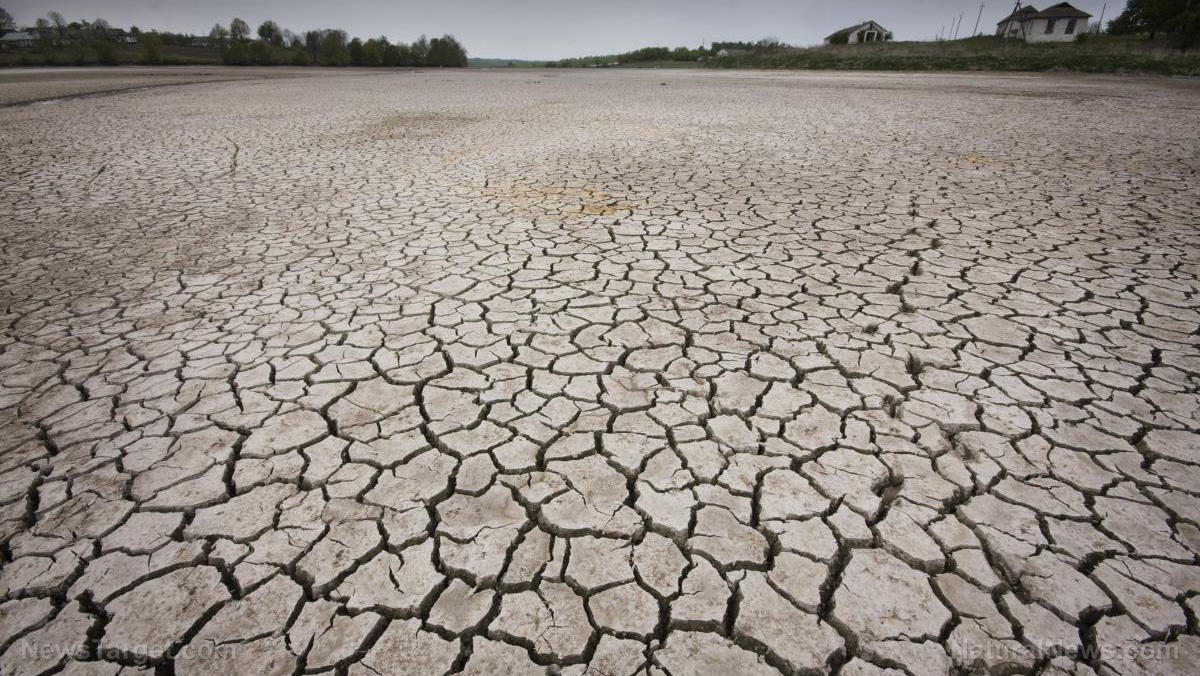Proposed oil field in southern Africa could threaten over 130,000 elephants, regional ecosystem and local communities
06/25/2021 / By Arsenio Toledo

An oil and gas company is planning to build a massive new oilfield in one of the world’s last untapped wildernesses in southern Africa. This proposed oilfield will threaten the lives of over 130,000 elephants, as well as the regional ecosystem and any community living in the area.
The proposed oilfield would be set up by ReconAfrica, an oil and gas company headquartered in Canada and listed on the stock exchanges of two other countries. The company has already leased more than 34,000 square kilometers (13,127 square miles) of land in the Kavango Basin, an area that covers most of the southern African nations of Namibia and Botswana. (Related: Poaching rates DOWN for elephants compared to a decade ago, but they’re not out of the woods yet.)
Conservationists believe the proposed oilfield would devastate regional ecosystems and wildlife as well as local communities located within and around the vicinity of the oilfield.
Oilfields would drive elephants closer to extinction
Conservationists in Africa and all over the world are up in arms over the proposed oilfield.
“It is incomprehensible that ReconAfrica’s hunt for fossil fuels is going ahead,” said Rosemary Alles, president and co-founder of the Global March for Rhinos and Elephants. “Fewer than 450,000 elephants survive in Africa, down from millions not so long ago: 130,000 of these have established this region as a home range, and ReconAfrica’s misbegotten plans place them at direct risk.”
The government of Namibia said it has only sold exploratory licenses to oil companies like ReconAfrica. These licenses do not allow the companies to conduct oil drilling operations.

The government further claims that these exploratory wells are not located in any “conservancy or environmentally sensitive areas and will have no significant impact on our wildlife.”
But scientists, environmentalists and people living within the vicinity of the proposed oilfields say otherwise. They believe ReconAfrica’s project will have a critical effect on water supplies and threaten the Okavango Delta, a huge pristine wilderness and UNESCO World Heritage Site in neighboring Botswana.
“Every element of this process – from new roads to drilling sites, refineries to terminals – will devastate the ecosystem and the local communities that depend on it for farming and fishing,” said Nnimmo Bassey, a Nigerian environmental justice advocate and leader of Health of Mother Earth Foundation and Oilwatch Africa.
“Searching for new oil wells at this time simply means searching for trouble for our nations and for the planet,” said Bassey.
Alles added on to this by saying that the noise and vibrations created by the exploratory drilling and the increased human activity would be enough to significantly disturb the elephants.
“This can drive them away from their ancient migratory routes and closer to villages and agricultural areas, leading to more human-elephant conflict,” said Alles.
ReconAfrica has denied the charge that its proposed oilfield would threaten the local environment. The company said the project would bring jobs and huge economic benefits to Botswana and Namibia. The company estimated that the proposed oilfield could potentially generate between 60 to 120 billion barrels of oil and be worth billions of dollars to the two affected countries.
A company spokesperson said the region’s energy industry could be developed in a way that significantly minimizes the risk to the local environment.
The spokesperson added that there were measures in place to address concerns regarding noise and vibration. He said the company had also installed solar-powered community water wells for the local communities. To protect the ecosystem, the company claimed it was using water-based, biodegradable and chloride-free drilling fluids. To not hinder elephant communication, the company was also supposedly using low-frequency equipment that would not be used at night, when elephants typically communicate.
“We are committed to continuing to work closely with, and under the direct oversight of, the governments in both countries, as well as their regional and traditional authorities, to ensure we continue to comply with relevant laws and regulations throughout all the stages of our operation.”
Learn more about the threats facing elephants and other wild animals by reading the latest articles on Extinction.news.
Sources include:
Submit a correction >>
Tagged Under:
Africa, animals, Botswana, conservation, Ecology, ecosystem, elephants, Endangered species, environment, extinction, fossil fuels, Namibia, oil, oil drilling, oil exploration, oilfield, ReconAfrica, wildlife
This article may contain statements that reflect the opinion of the author
RECENT NEWS & ARTICLES
COPYRIGHT © 2017 COLLAPSE.NEWS
All content posted on this site is protected under Free Speech. Collapse.news is not responsible for content written by contributing authors. The information on this site is provided for educational and entertainment purposes only. It is not intended as a substitute for professional advice of any kind. Collapse.news assumes no responsibility for the use or misuse of this material. All trademarks, registered trademarks and service marks mentioned on this site are the property of their respective owners.





















